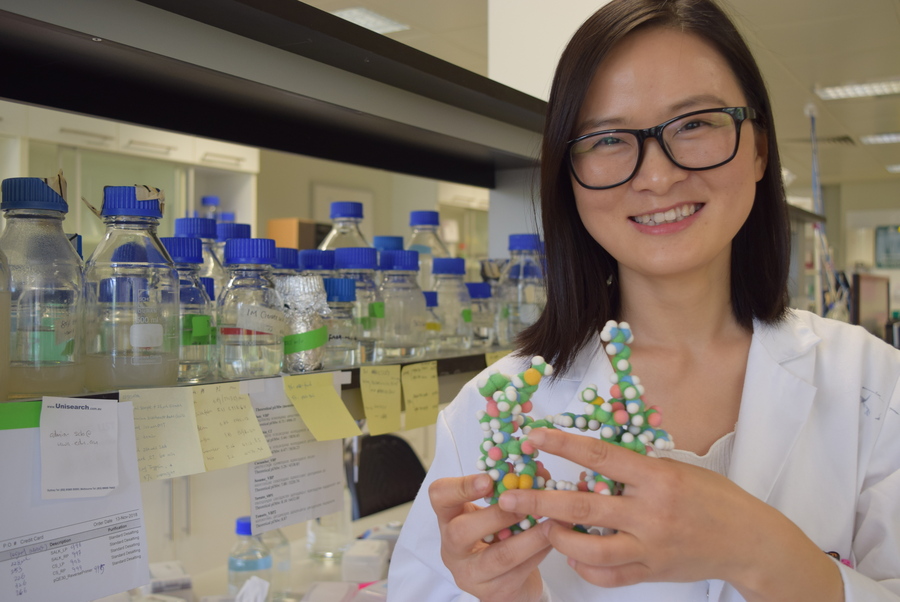Vicilin is one of several very abundant seed proteins. The researchers from The University of Western Australia's School of Molecular Sciences and the ARC Centre of Excellence in Plant Energy Biology showed how several hundred million years ago, some vicilins acquired a small, extra protein passenger – a family they call the vicilin-buried proteins. The first vicilin-buried protein was shown to block enzymes and another was said to have anti-HIV activity. The researchers characterised half a dozen and have evidence that there are hundreds more of them in diverse types of seeds including those of tomato, date palm, sesame seeds and cucumbers.
“Proteins evolving within a pre-existing protein precursor is an interesting mechanism, and this work suggests the evolution of peptides within a ‘host’ protein might be more common than currently appreciated” said Jingjing Zhang, PhD student and the paper's lead author.
Vicilin-buried proteins fold into a hairpin with two bridges connecting each arm of the hairpin, making them quite stable and this can be useful for making protein bioactives.
The age and evolutionary retention of this family of small proteins suggests its members play important roles in plant biology.
This study follows a 2014 one to become the second family of buried proteins, suggesting a mechanism whereby small proteins can evolve inside a ‘host’ protein might be more common.
The research has been published in ACS Chemical Biology.

